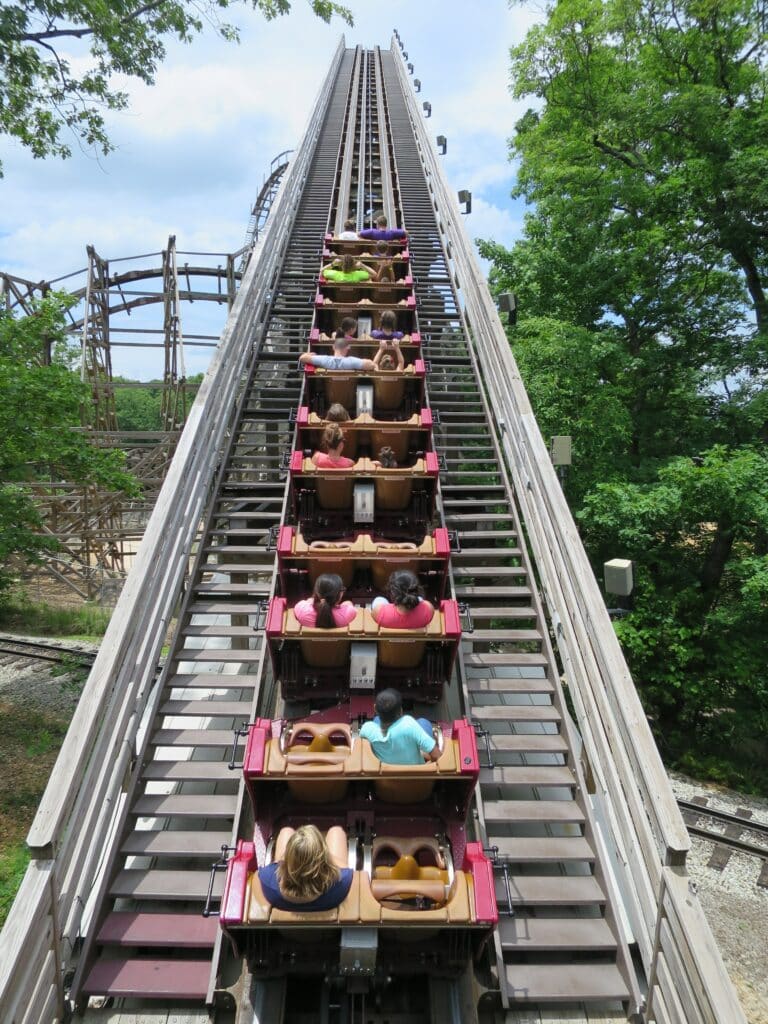A New School Year Means a New Start

Posted on September 11th, 2022 to College Admission by Evan Read
The start of a new school year presents every student an opportunity to start anew. Truth be told, most don’t see it. They tend to be lost in the fog of emotions which swirl around them as that first day comes and goes. Frankly, this is a normal and human response. I have heard some express sadness for the end of summer–which translates to an end to endless unstructured and free time. I have heard others express a nervous excitement–a result of the newness and uncertainty that comes with a new school year.
If students (or the family members/adults supporting said students) took a moment to detach and rise above the emotional cloud they are enveloped in, they find the space to ask themselves an important question: “how do I want to make the most of this year?” A relevant question, right?!
In reality the answer to this question will look different from one student to the next–everyone has different needs, goals, and aspirations. That said, I have some thoughts about general areas of focus based on where a student is on their educational journey.

9th GRADE
Starting 9th grade means a student is forced to learn about a new environment and a new set of expectations. That is a lot for anyone. My suggestion is that you focus on the transition. High school is new and different, so allow yourself time and space to acclimate to your new environment/surroundings. Invest time into making friends, exploring extracurricular activities that interest you, set an academic and personal goal, and/or develop a time management strategy. Don’t feel the pressure to have your high school (or your entire life for that matter) “figured out”.
10th GRADE
As you enter 10th grade you may feel a sense of confidence. You are familiar with the school’s layout, you understand the social climate, and you are acclimated to teacher expectations. That is all well and good, and it means you need to start thinking about your next step. Sure, continuing to “figure out high school” is important; it also means you can direct those efforts a bit.
Try setting an academic and extracurricular goal focused on stretching yourself outside your comfort zone. Take a moment to reflect on your strengths and areas for improvement, then identify a plan to make yourself better. This could mean committing to increasing your GPA; perhaps it means taking a class beyond what you normally would take; even, joining a club/organization that would allow you to explore something you are interested in.
11th GRADE
Going into your junior year, you may feel an even greater sense of confidence and/or comfort than in 10th grade. This is good. At some point, though, most 11th graders succumb to (what I affectionately call) the “oh s@!t” syndrome. A moment when you realize that graduating high school isn’t that far off, and it is time to start making some important decisions about your future. If your goal is college, you may start to feel an enormous burden of stress emanating from the idea that college admissions is mostly based on your 11th grade performance. I am here to tell you that is unequivocally untrue. It’s actually based on the entirety of your high school experience, from 9th grade through 12th grade. They will want to see your arc, asking:
- Did you increase the challenge and rigor of your academic courses?
- How did you learn about your passions/interests, then vigorously pursue them?
- How did you grow, change, and mature over your high school tenure?
Knowing this now, ask yourself the same questions. If you feel dissatisfied with the answers, then set some goals/intentions to have answers you are satisfied with. This isn’t to say you need to overextend yourself. It just means some self-reflection, taking stock of where you are now and where you would like to be in the future.
12th GRADE
Entering 12th grade you are the proverbial “top dog”, right?! While that may or may not be how you feel, the reality is you are starting your last year of high school. In 9 months time, if all goes according to plan, you will be a graduate of whatever respective high school/program you attend. So here are some questions to think about as you ponder what your senior year may look like:
- What can you do to make the most of this year?
- Is there anything you haven’t accomplished? If so, what is it and can you accomplish whatever it is?
- What skill(s) and/or experience(s) do you think you need to be ready for life after high school?
The overall idea here is that you need to keep moving forward. 12th graders can sometimes have a tendency to become complacent. It’s often referred to as “senioritis”. While I think it is important for students to maintain balance in their lives, it’s also important to remember that life continues after high school. So enjoy senior year, and also take advantage of the other opportunities around you to make the most of it!
COLLEGE
Being a college student is certainly very different from being in high school, the expectations are higher and you have a greater level of personal responsibility. That said, there are some similarities. As a first year student, you should be focused on the transitional experience. Set some goals around getting acclimated to your new environment–joining some clubs, developing effective study habits, and learning how to live independently. In your sophomore and junior years focus on maximizing your educational experience by pursuing co-curricular and career related opportunities, seek out leadership opportunities, and discover ways to stretch yourself outside your comfort zone. Your senior year is all about readying yourself for life after graduation, all while enjoying your final year of college. This, in addition to your academics and extracurricular activities, would mean pursuing opportunities that will support your efforts in applying for jobs and/or graduate school.
Looking for more?
I want to support you! Contact me today so we can get started.
Get the latest updates!
Copyright © 2024 Read's Corner |
Site by CannaPlanners







